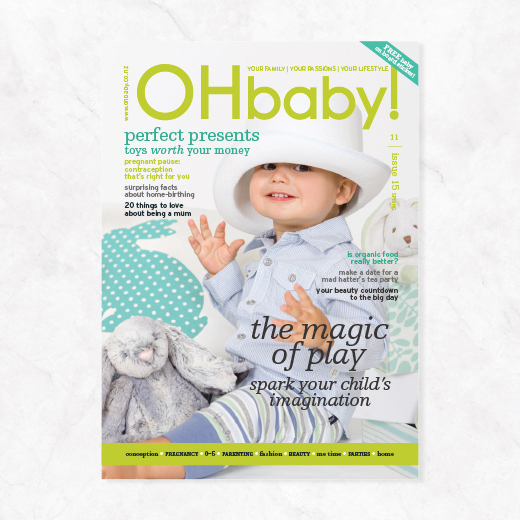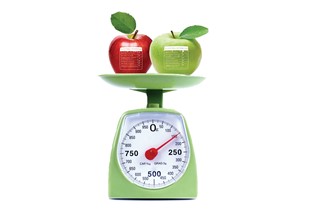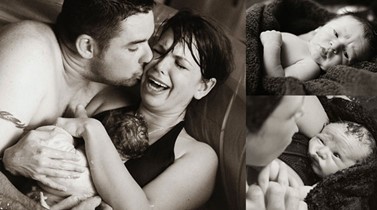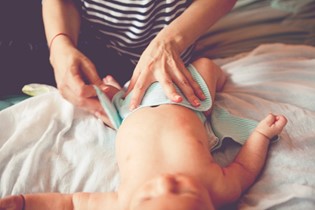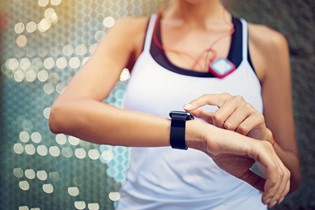Try a triathlon
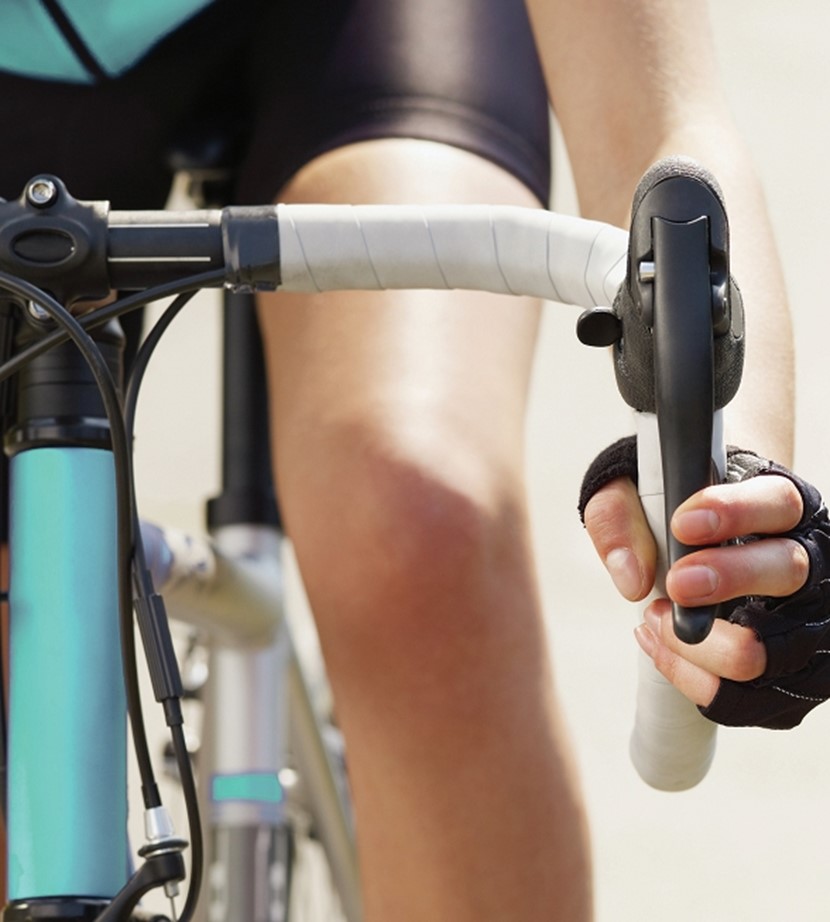
Why tri? Why not!
Put the "try" back in "triumph" and make a triathlon your fitness goal this summer. Physiotherapist John Forrest offers some advice on getting into this increasingly popular sport for the first time.
As the days get warmer and longer it is easier to think about being more active. Whether you have spent the winter at the gym or curled up on the sofa, what about having a shot at a new challenge this summer - the triathlon? Don't panic! Triathlons are not all about lots of lycra on super-fit people riding flash bikes and endless hours of training - it is a sport for all abilities and could be just the thing for you.
Why triathlon?
Here are a few reasons why you should consider tackling a triathlon, even if you've never been a keen athlete before.
- Because a triathlon is a multi-sport event it develops your whole body rather than just specific muscle groups. Crucially for postnatal women, it will help to strengthen those all-important core abdominal muscles.
- The variety of training (yes, you will need to spend some time working on swimming, cycling and running) can make it much more fun than doing the same workout all the time and if you train sensibly over the three disciplines, you will be less likely to pick up niggles and injuries.
- Give yourself the challenge to learn new skills - are you able to swim a length of your local pool without nearly drowning? Does the thought of fixing a fat bike tyre strike you with terror? Just think how awesome it will be to master a new skill, particularly an essential life skill such as swimming.
- Give yourself a challenging, realistic exercise goal to focus on and get a sense of achievement by finishing your first race and becoming a triathlete.
- Some weight-bearing exercise, which you will get from walking or running, is a must for all women to maintain bone density and reduce the risk of osteoporosis.
- Triathlon is a sociable sport and great for meeting people. So turn off the TV and go and meet your girlfriends down at the pool for a swim and a coffee.
Growth sport
A triathlon is a multi-sport race which includes a swim, bike and run section and, yes, they are done one after the other with a quick stop, known in the business as a transition, after the swim and bike to get organised for the next part.
The triathlon started in Mission Bay, San Diego, California in 1974. A swim/run biathlon came first, then someone thought about adding a bike section and boom! The triathlon was up and running. Triathlons quietly started to grow, but with the advent of the long-distance Hawaii Ironman triathlon hitting national US sports channels in the early 1980s the pace really picked up. The world triathlon governing body, the International Triathlon Union (ITU), was founded in 1989 and just 11 years later the triathlon debuted at the 2000 Sydney Olympics.
Triathlons have continued to grow in popularity. Tri NZ report on their website that the participation rate jumped from 47,000 in 2000 to 99,000 about 10 years later and an independent Nielsen study found that the triathlon is the fastest growing sport in New Zealand.
Not only are lots of Kiwis getting into triathlons, but we are also really good at it. New Zealand female athletes such as Andrea Hewitt, Nicky Samuels, Debbie Tanner, Jo Lawn and Sam Warriner are truly world class.
The good news in New Zealand is that in most regions you will find a local triathlon club, so consequently there are lots of well organised races throughout the country.
Women-only events
If you don't fancy mixing it up with the boys, there are some really popular events just for women. Women-only triathlon events started in New Zealand in 2003 as the Kellogg's Special K Triathlon series and have gone through various other guises - SHE Woman Triathlon and Sun Latte Triathlon. Now the highest profile national series are the Contact Tri Woman and Real Duathlon Series (a duathlon is a run/bike/run event - rather than swim/bike/run). Check the website directory below for more on these series which have events throughout the country, cater for all abilities, shapes and sizes and are really well organised. They are a fantastic place to kick off your triathlon career.
On ya bike
So if you think you might like to give a triathlon a go but are daunted by the prospect of organising training and equipment, here's my advice on the best way to ease into the sport:
Watch a triathlon: Preferably one for beginners. Yes, there will probably be one or two athletes who have some flash gear and are pretty speedy, but the majority of the field will be made up of people of all shapes and sizes and fitness ability, who are just doing it for fun, fitness and achieving a goal.
Choose your event: Triathlon events are run over the following standard distances:
- Super Sprint: 300-500m swim, 10km bike ride, 2.5-3km run
- Sprint: 750m swim, 15km bike ride, 5km run
- Standard: 1.5km swim, 40km bike ride,10km run
- Half Ironman: 2km swim, 90km bike ride, 21.1km run
- Ironman: 3.8km swim, 180km bike ride, 42.2km run
Don't choose to go long to start with: The smart move is to start off with a Super Sprint race.
Get the gear: Think you need a new carbon road bike, slick wetsuit and jazzy trainers? Well, you really don't. I did my first tri based around a muddy quarry in Wales with a borrowed surfing wetsuit and my brother-in-law's mountain bike and still loved it. If triathlon really turns out to be a hit, you can easily upgrade. All you really need are togs, a swim cap, a bike of some description which fits you and is well maintained, a helmet, a pair of shorts and T-shirt of a dry-fit type material and a pair of good running shoes.
Your local bike shop can help with the bike fit and it is essential that you get the right pair of running shoes, especially if you have had a baby recently as your body will have changed. Your joints need to be well supported and the shoes need to suit your running biomechanics. Don't forget there is lots of good second-hand gear out there but I wouldn't recommend buying second-hand shoes or bike helmet.
Get your training sorted: You need to be organised to fit in and enjoy your training. Tri Contact Woman and Real Duathlon websites have training plans for beginners and intermediate athletes, or if you want something more specific look for a Tri NZ accredited coach in your area.
One of the key benefits of having a coach is that he or she will tailor your training programme to your needs and give you tips to make the most of your ability.
If squeezing in all three disciplines is too much with little ones to look after why not gather together some other mums and enter as a team? If you don't think you are up to running yet it's no problem as it's fine to walk the run section and many people do just that when they start off. If you really don't want to get your feet wet you can give the swim a miss and have a crack at a duathlon instead.
Yes, it takes some guts to give multi-sport events a go, but I'm confident that once you do, you'll soon realise why triathlon is New Zealand's fastest growing sport.
My top 10 training tips for newbies
Training for the three disciplines might seem a bit of a challenge, but with planning it can easily fit into your lifestyle. You could, of course, decide to fag the training until maybe the week before your race, but that's likely to end in tears. If you get organised with a great plan that you are really comfortable with you will reap all the benefits of training - looking and feeling fitter, learning new skills - the list goes on, and you will have a much more rewarding and enjoyable experience on race day. Your training journey and your race is the real deal, not just the race itself. Here's where to start:
- If you are new to regular exercise, have had a break during pregnancy and after having a baby, or have had health issues go and see your GP. Discuss what you are planning to do, get a warrant of fitness and the green light to get into it. If you have had problems with your pelvic floor after giving birth it would be sensible to see a physiotherapist who specialises in women's health. It is important that your pelvic floor is strong and responsive before starting high-impact exercise such as running. Your physiotherapist can help you strengthen your pelvic floor and iron out other post-baby issues.
- You should aim to do two swims, two bike rides and two runs a week to get you ready for your first triathlon. It sounds a lot but it's not really if you consider that we should all be doing a minimum of 30 minutes exercise a day. Try to be consistent with your training, but if you miss a session it's no big deal, don't try to catch up. Make exercise something you enjoy, but be smart and organised with your training. If you need help get a Tri NZ accredited coach on board.
- Never train seven days a week, do six at most. If you are new to exercise training five days a week is better. Make sure you add in the three Rs - rest, relaxation and recovery.
- Try to alternate harder with easier days.
- Get the training to fit your lifestyle, not the other way round. Make use of "dead" time by cycling to work or running/walking to the shops with the stroller instead of taking the car.
- Remember to keep well hydrated and fuel your body. It's not much fun getting dehydrated or running out of gas.
- Make sure you schedule some runs straight after your bike session, otherwise those legs are going to get a bit of a shock on race day. This is known as a brick session.
- Add a core stability workout to your programme. You could do a pilates or yoga class once a week.
- Have a good stretch after every session.
- Make training fun and work out with friends. You don't need to give up the gym either. If you love your spin class, do it then nip out on the bike to make it a brick session. Also consider that most swimming pools run squads and your local bike shop might have a women-only ride - or you could start one up! Don't forget about your local Tri club too.
- Triathlons can be addictive and you never know where it might take you!
Triathlon directory
Check out the websites below for event information, general advice, training programmes, race rules etc:
- http://www.triathlon.org.nz/: Triathlon New Zealand
- http://www.tri.co.nz/: Contact Energy Women's Triathlon Series
- http://www.realduathlon.co.nz/: Real Women's Duathlon Series
- http://www.womenstri.co.nz/: PhysioMed Women's Triathlon Series based in Christchurch
- http://www.oceanclinics.co.nz/: Open water swim training clinics, based at locations around Auckland
John Forrest is an amateur triathlete, a NZ-registered physiotherapist and Tri NZ level one accredited coach. He's wearing new fatherhood well, running a personal best in the Wellington marathon just one month after baby Andy was born in May.

AS FEATURED IN ISSUE 15 OF OHbaby! MAGAZINE. CHECK OUT OTHER ARTICLES IN THIS ISSUE BELOW
